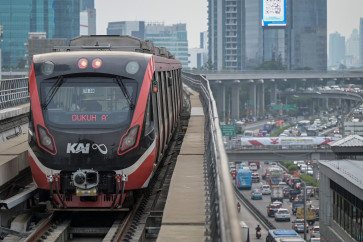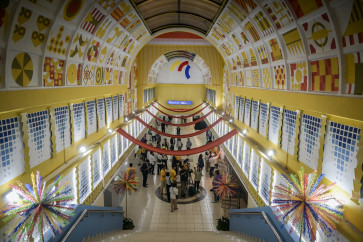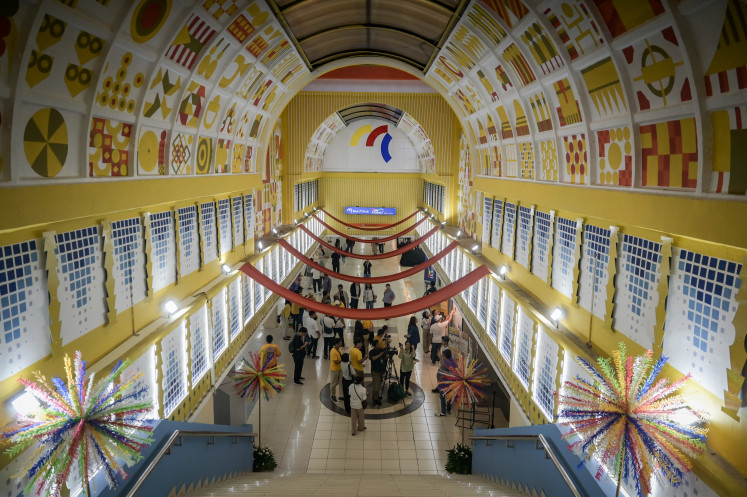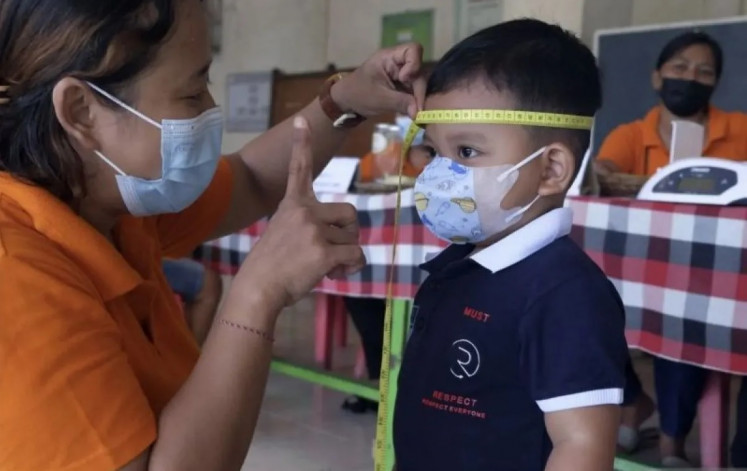ICT ministry concludes spectrum refarming for 5G
The refarming allows the 2.3 gigahertz (GHz) band to accommodate different generations of cellular networks, particularly 4G and 5G.
Change text size
Gift Premium Articles
to Anyone
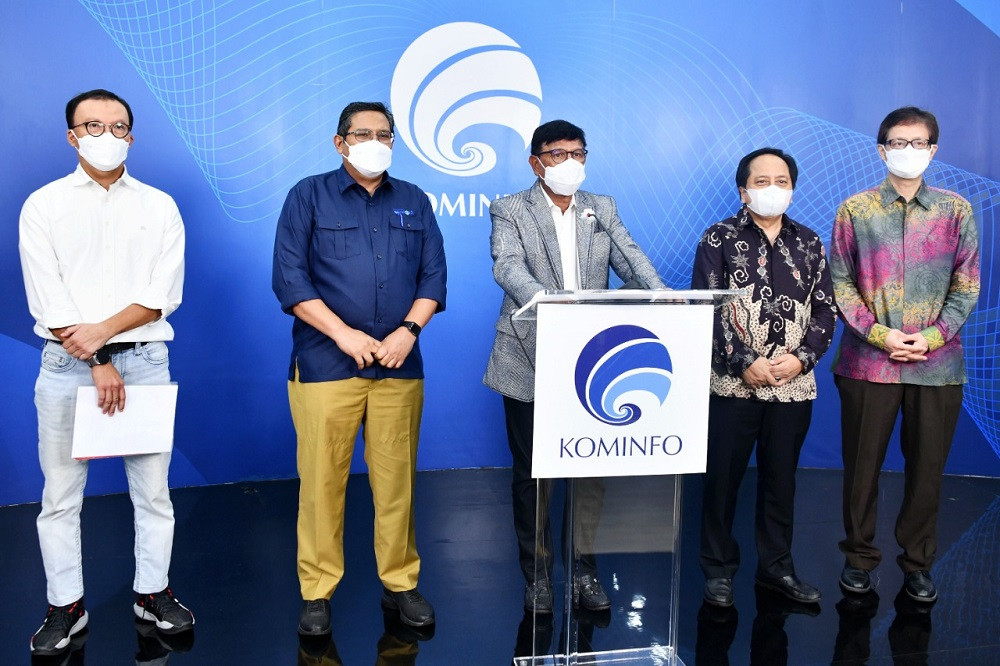
T
he Communications and Information Ministry announced on Wednesday that it had concluded refarming the 2.3 gigahertz (GHz) frequency band to accommodate 5G as major Indonesian telecommunications firms begin rolling out 5G services.
The refarming process started in July this year after the government auctioned off part of the 2.3 GHz spectrum to two mobile operators, Smartfren and the subsidiary of state-owned telco giant Telkom, Telkomsel, back in May.
Spectrum refarming allows different generations of cellular networks, such as 4G and 5G, to operate within the same radio spectrum. Communications Ministerial Regulation No. 4/2020, issued in September last year, regulates the exact frequency range allocated for each network within the band.
“Benefits from the refarming include better network services as well as an easier and more efficient mobile broadband technology upgrade from 4G to 5G,” Communications and Information Minister Johnny G. Plate said in an online press briefing.
He said the refarming was also expected to spur 4G development and increase 4G network capacity.
This year, two of the biggest telecommunication companies in Indonesia, Telkomsel and state-owned Indosat, launched the first-ever commercial 5G services in the country, marking Indonesia's entry into a global trend.
Read also: Indosat launches 5G service shortly after rival Telkomsel
Johnny went on to say that that the spectrum refarming included reorganizing the communication frequencies of 15,577 base transceiver stations (BTS) in nine geographical clusters across Indonesia, such as in Riau islands, northern Sumatra and Greater Jakarta, among others.
The ministry is also working to reallocate the 700 Mhz band from television broadcast to 5G through an analog switch off (ASO) plan. Last year, the minister called for private television broadcasters to comply with the plan that entails converting analog television to digital television, also known as ASO.
Read also: Digital killed the analog star: Minister calls for TV transformation
“Before the refarming, people can enjoy download speeds of 700 megabits per second, but afterward, they can enjoy up to 1 gigabit per second,” said Bintoro Yuwono, president director of broadband wireless access company PT Berca Hardayaperkasa.
Berca Hardayaperkasa uses the 2.3 GHz band and took part in the refarming process.
The minister said that the government was also “studying” the potential of refarming millimeter waves, also known as extremely high frequency (EHF), between 30 GHz and 300 GHz for 5G.


